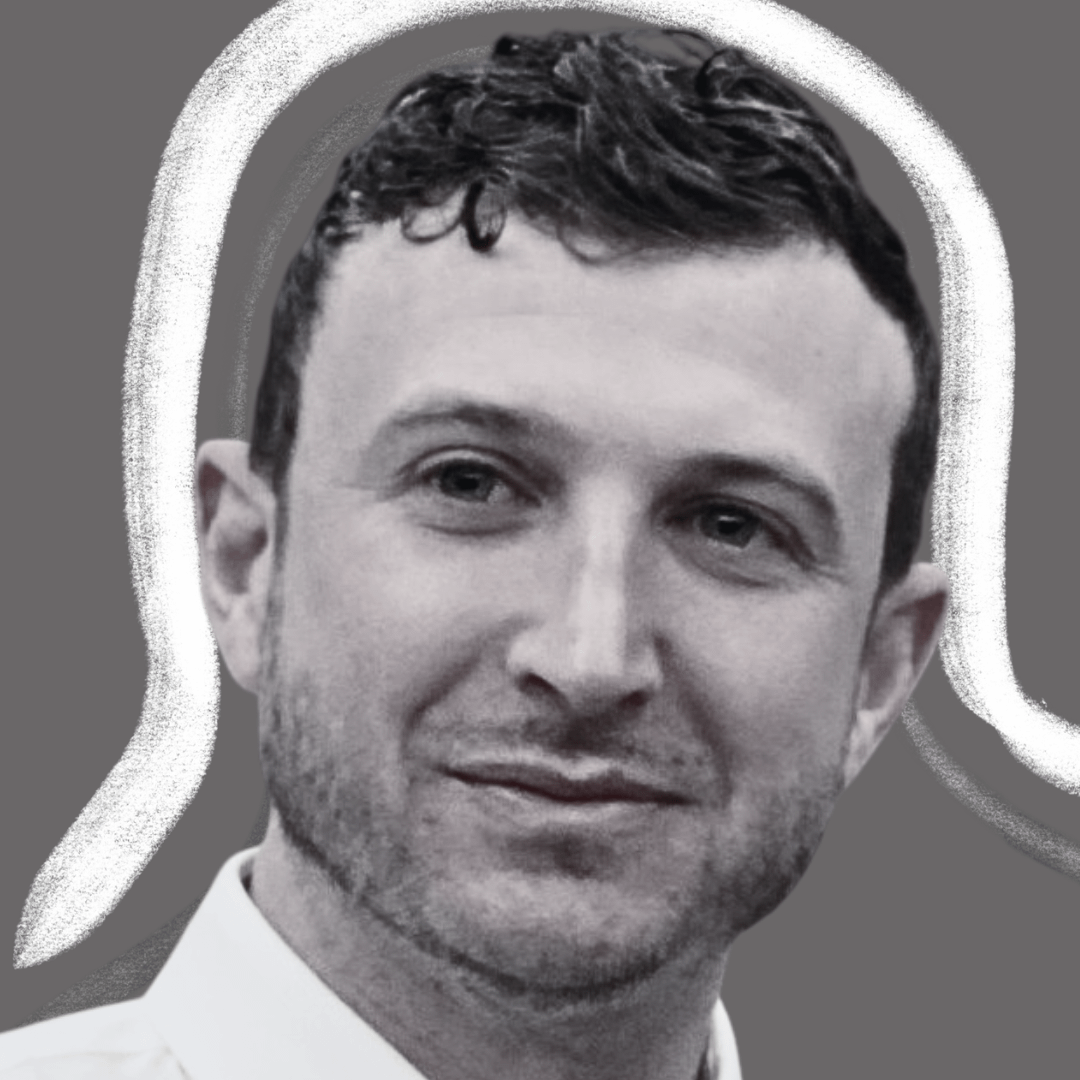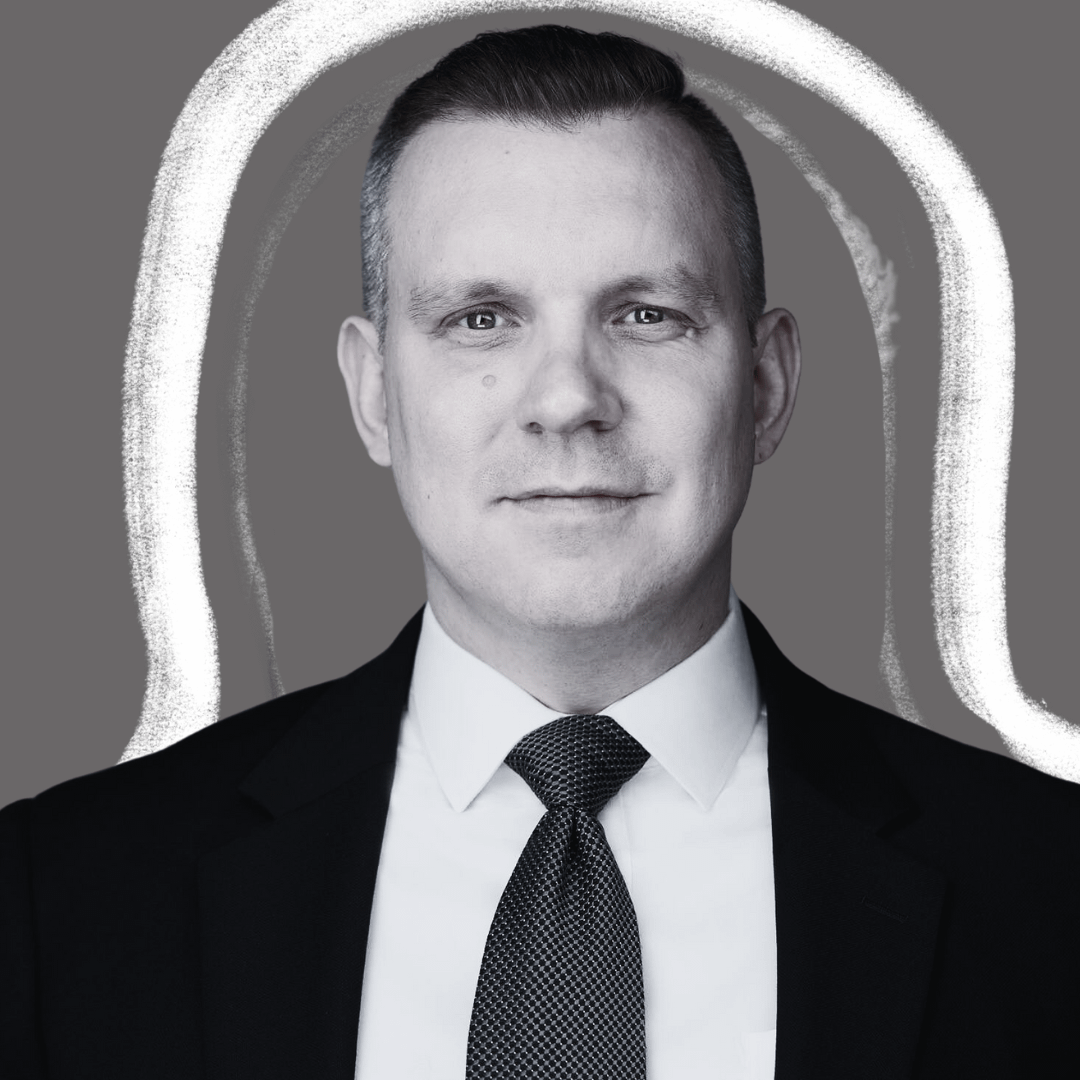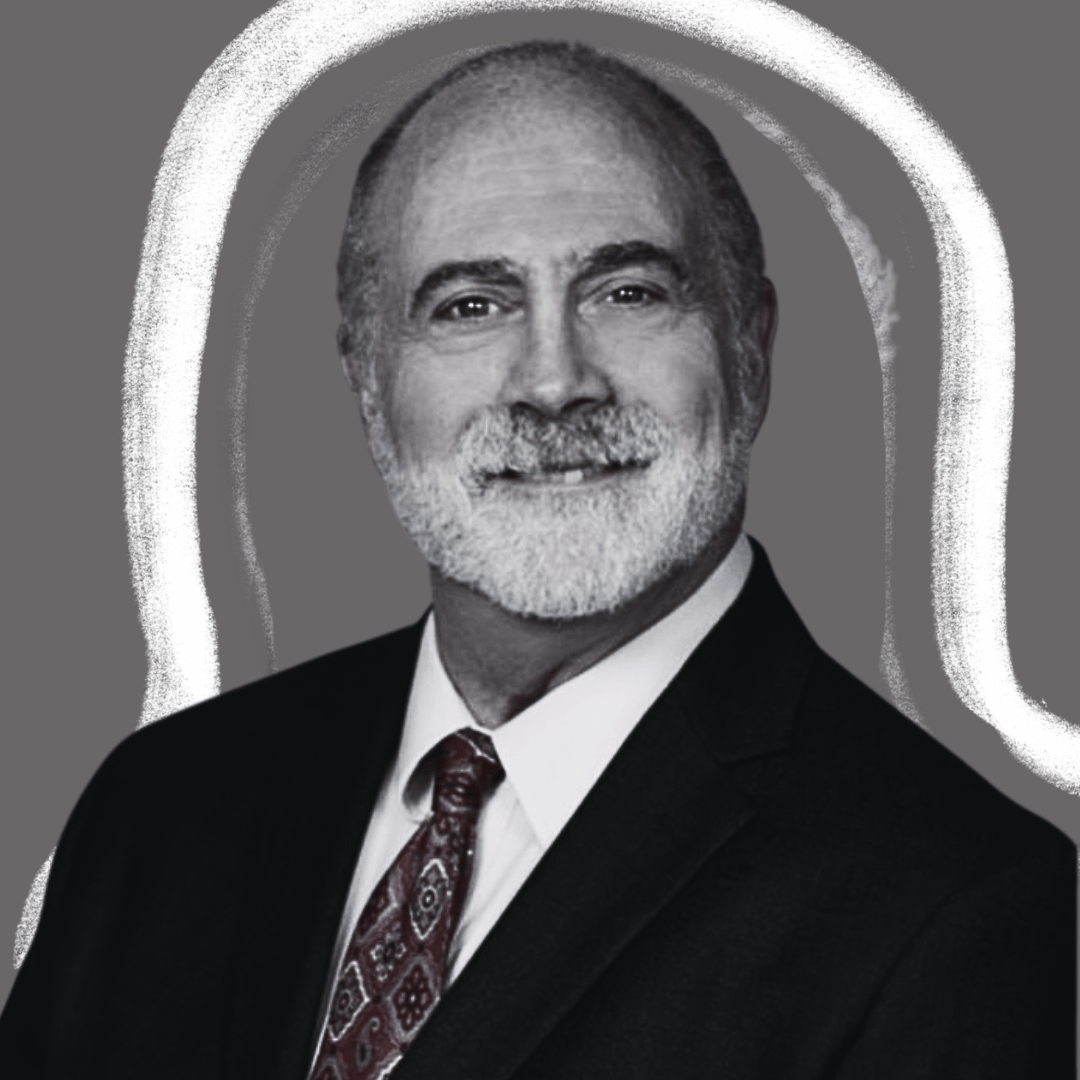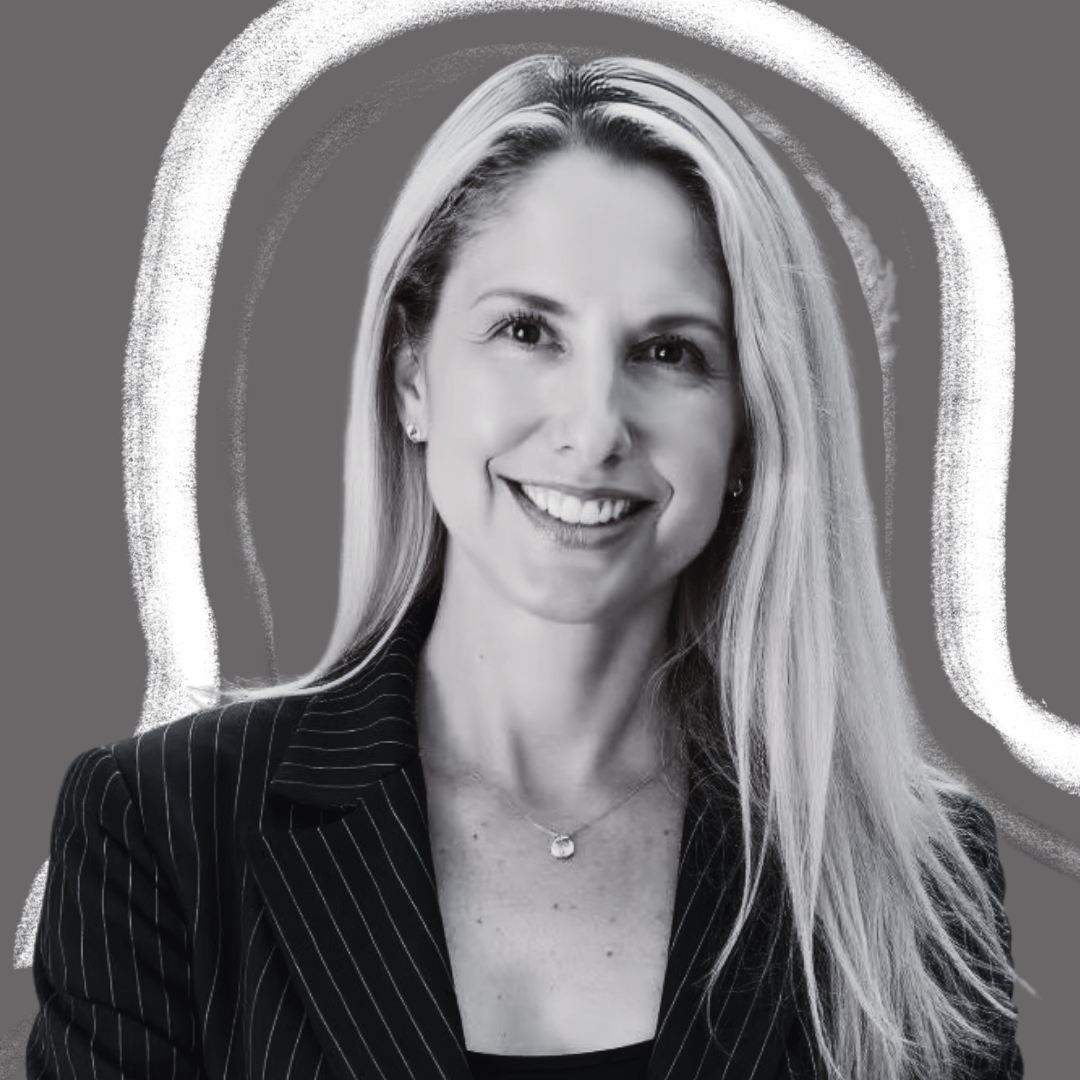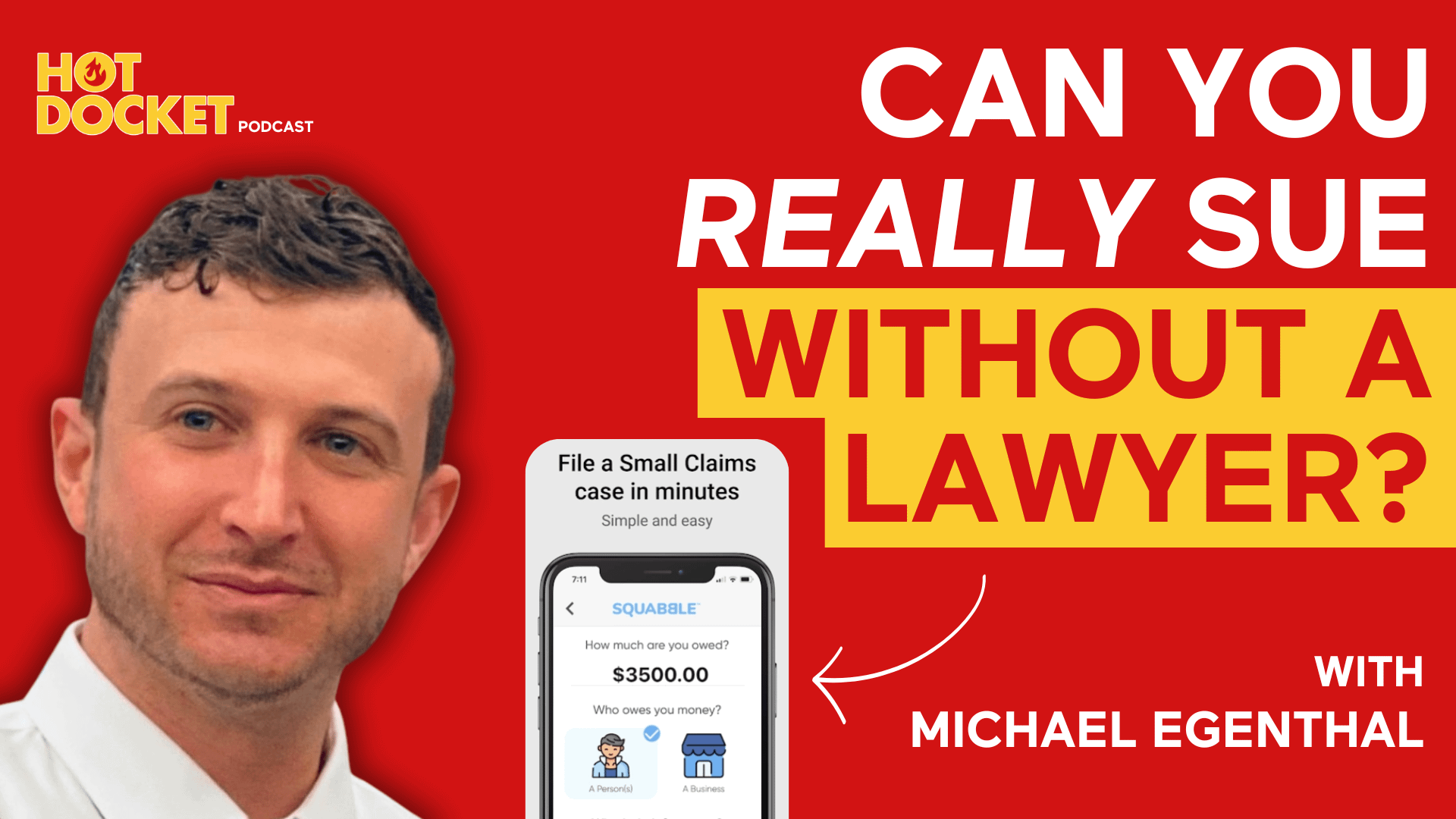
Episode Overview
- From Olive Branch to Operating System – How Squabble evolved from a local mediation concept into a nationwide platform handling thousands of small claims.
- Why Most Small Claims Fail – The common procedural mistakes that derail pro se litigants—and how Squabble helps users avoid them.
- Triple-Check to Win – Squabble’s built-in process that dramatically lowers rejection rates and keeps claims moving forward.
- David vs. Goliath – How regular people are using tech to successfully bring claims against big companies—and win.
- When Automation Meets Advocacy – The balance between tech efficiency and the role of attorneys in simplifying legal access.
- Legal Industry Pushback – Why some traditionalists are wary of platforms like Squabble, and what that reveals about the future of legal tech.
Episode Links
Want to hear more from elite lawyers and industry-leading marketers?
Follow us on Social Media for more
Episode Topics
- Streamline Referrals – Use legal tech platforms to route out-of-scope or low-value cases, keeping your firm focused and your network grateful.
- Improve Your Intake – Apply principles from Squabble’s triple-check system to reduce document errors and boost client success.
- Lean Into Legal Tech – Embrace tools that simplify legal access—tech-savvy clients increasingly expect it.
- Know the UPL Line – Stay current on what counts as unauthorized practice so you can work with (not against) legal tech partners.
- Empower Through Education – Like Squabble, demystify legal processes to boost client trust—even when they’re not your direct client.
Episode Transcript
Expand Transcript

[00:00:00] Michael Egenthal: And we'd like for them to see squabble as the solution where it's like, Hey, I know some basic details about what happened to me and how I'm harmed, and there's a solution for 'em where I can answer sort of very basic questions in an approachable, non-threatening way, non-intimidating way, non legalistic way, and get the process done literally in seven weeks of their lives. [00:00:23] Bobby Steinbach: Welcome to Hot Docket, the show where we talk about winning marketing strategies that have built the most successful law firms. [00:00:29] Andrew Nasrinpay: Join us every two weeks for the latest trends and tactics. Grow your law firm. [00:00:34] Bobby Steinbach: Hey everybody and welcome to the Hot Docket Podcast. Today we have on with us Michael Egenthal. We're gonna be talking about building a platform for serving thousands of small claim clients. [00:00:44] Bobby Steinbach: I'm pretty excited for this because I personally have wanted to go do like the small claim stuff, and I'm just so lazy. So this to me is like an answer to some of my problems. [00:00:54] Andrew Nasrinpay: Yeah, I think adding technology there removes a lot of the things that would make that annoying or difficult, and it speeds up the process. [00:01:02] Andrew Nasrinpay: And it's also probably an area that a lot of lawyers don't wanna get that involved in because it's not as lucrative or really, juice isn't worth the worth, the squeeze. For those type of claims. So [00:01:15] Bobby Steinbach: yeah, I'm curious to see how this works mechanically because it feels like there's gonna be a lot of bureaucracy and kind of tape cutting to have a technical solution to this because it's so human, it feels. [00:01:25] Bobby Steinbach: But that's why we have Michael with us. So Michael, thanks for joining us. [00:01:35] Bobby Steinbach: It's an absolute pleasure to be with you guys. Thanks for inviting me. Of course. Uh, to start, I love the name, how, how'd you land on squabble and, uh, can you share some other names that you might have been throwing around Olive branch? Uh, [00:01:51] Michael Egenthal: um, bridge, uh, we were trying to think of names that indicated, uh, obviously there's an adversarial situation going on. [00:02:01] Michael Egenthal: It's not terribly pleasant. It's not the most desirable scenario, uh, that you wanna be in. Nobody seeks this situation out. However, uh, we're not dealing with federal antitrust litigation or a death penalty case. Uh, it's a monetary dispute, uh, somewhere around $25,000 and under. And while it's an important and big deal to those that feel legitimately feel as if they're owed a sum of money, um. [00:02:30] Michael Egenthal: You know, ultimately it's the type of thing that, um, can be settled and we can move on from. So yes, it's adversarial. A squabble is a fight. Um, I. It's a little fight, it's a little spat and, and one that we want to be sort of bubbly and approachable, not to diminish the significance of it, um, but, but to indicate that, um, you know, the, the, the traditional formalities associated with fall, uh, with small claims don't necessarily need to be there, um, anymore. [00:03:03] Michael Egenthal: Um, and you can still seek [00:03:04] Bobby Steinbach: justice. Yeah. And stepping back from kind of little spats, I bet when you first started your path as an attorney, you might have had a different outlook or what you were gonna do. So I'd love for you to just tell us a little bit about why you became an attorney and what that journey looked like for you. [00:03:26] Michael Egenthal: Yeah. I grew up in New York. Um, and, you know, um, my first job out of school was working at the Screenwriters Guild in Manhattan. I. And I observed sort of, um, outside the conference room doors, I observed the negotiations that were going on between screenwriters, television writers with, uh, studios and, you know, writers trying to get, uh, to negotiate favorable conditions for themselves, you know, credits, um, and residuals. [00:03:55] Michael Egenthal: Um, and I thought it was an interesting, um, dynamic where you had an artist. Um, a creative type who, you know, was working with, uh, with management to secure, uh, you know, conditions, uh, for work that were favorable for them. And the liaisons between those, uh, two parties were obviously attorneys who facilitating the negotiations. [00:04:18] Michael Egenthal: Um, you know, I was 21, 22, didn't necessarily know where I was going with my life, but um, that was the initial spark. Um, and then, yeah, moved out to San Diego and just never wanted to leave San Diego and, uh, went to law school here. Um, and, and, and, and ran a practice, civil litigation and transactional law for eight or nine years. [00:04:44] Michael Egenthal: Um, well, teaching law as well. [00:04:47] Bobby Steinbach: And was that focused on entertainment? Were you doing entertainment law type stuff or was it, uh, broader? No. [00:04:53] Michael Egenthal: Yeah, it was, it was broader. What ended up happening was. Um, I fell into a niche in San Diego whereby, uh, you know, a, a number of my friends were entrepreneurs, um, and I had begun representing them. [00:05:11] Michael Egenthal: So I sort of, by default became a startup lawyer, and then I became a lawyer to, to small businesses and to middle-sized businesses. And next thing you know. Um, you are, you're doing both the transactional work to, to, uh, get entities set up, um, and then any, any potential litigation work that comes when a dispute arises. [00:05:34] Michael Egenthal: Obviously, in my practice, these were larger scale, um, disputes, um, but the fundamentals are [00:05:42] Andrew Nasrinpay: how did you move from being an attorney to starting squabble? [00:05:47] Michael Egenthal: Yeah. So, um, I teach law as I mentioned, um, you know, one day I was in the, uh, the basement, the, the depths of, um, university of San Diego Law School, and I was chatting with a student and, you know, we were both kind of dead tired and we, so, so we were kind of just like meandering with our minds on a little bit of a break from studying and we're like, how many people you think. [00:06:14] Michael Egenthal: Threatened to sue someone in small claims and then never actually do it. Right. Like, who does that? Me, I do that, right? Yeah. It's like you always hear like, I'm gonna take you to small claims, but who actually does it? Um, and it just like, kind of like musing about it and then started to do a little bit of just superficial research and then that led to much more in depth research and we ended up finding out. [00:06:41] Michael Egenthal: Hey, there are three and a half million small claim suits filed in the country per year, but there's, on the lower side, 40 million disputes in this monetary range, uh, each year and on, on the high side, a hundred million disputes in this monetary range per year. A lot of people who are legitimately owed a sum of money and, uh, you know, are, are those suits go un adjudicated. [00:07:08] Michael Egenthal: People just sort of say. You know, uh, what am I gonna do? This, this process is, is daunting. I have no idea where to begin or where to end. And they kind of just move on with their lives. And, um, and one thing led to another. Like, why isn't there a, a, you know, a tech solution to this? Why isn't there a modern solution to this? [00:07:30] Michael Egenthal: Um. And you put one F1 foot in front of the other and you stu suddenly start building out, um, a platform, um, for, for small claims nationwide, which is, which is the, which has not been a small task. [00:07:47] Bobby Steinbach: And outside of. People just not pursuing claims, which as you mentioned is probably the most common way that you can, quote, unquote, make a mistake in, uh, filing these small claims type cases. [00:08:00] Bobby Steinbach: Are there any other common mistakes that people might make in filing these cases that Squabble is able to walk them through and help them avoid? [00:08:09] Michael Egenthal: Yeah, I mean, the thing, the thing with small claims is that it's, um, heavily localized, right? So you're dealing with, um, excuse me, you're dealing with usually county based, um, uh, venues or municipality based. [00:08:25] Michael Egenthal: So it's, the rules are based on, you know, kind of either your city or your county. I. Um, and they're all different, all over the country. They share some things in common in that it's a relatively informal small size dispute. Um, but the, there are many jurisdictional, um, distinctions. And when it comes to the law, we know it's probably, you know, if you think of, uh, the, the list of the most, you know, sort of formalistic, kind of rigid kind of old school. [00:08:58] Michael Egenthal: Type of professions or industries, you'd probably put law at the top of the list. So we all know that. Uh, and that has not changed, and that's a little bit at odds with, um, with, with the, you know, with the, the average person's, um, uh, a knowledge base. Um, so there's any number of things in a particular filing, whether it's the type of documents that you're filing. [00:09:26] Michael Egenthal: Whether it's particular information you're filling out on the documents, whether it's evidence submission, that that has to go with your documents. Um, certain requests that have to be made, uh, with the documents, whether it has to be notarized. Uh, there's a number of like jurisdictional idiosyncratic requirements that are desired by a particular clerk that, you know, UL results in a very high rejection rate for small claims filings, which is why it's so frustrating for folks. [00:09:56] Michael Egenthal: Um, and which is why, you know, we've, we've attempted to streamline it. [00:10:02] Andrew Nasrinpay: What do you think that rejection rate is? [00:10:06] Michael Egenthal: Yeah. Um, so it's, it's close to 50%. Um, we've, you know, we've been in conversations with a number of folks who have been in the industry in different cities, uh, for years. Um, and we've been. In, in, in conversations with, with clerks, uh, the clerks of courts in, in, in jurisdictions across the country. [00:10:33] Michael Egenthal: And they welcome, um, you know, something like squabble as a solution because for them it's an incredible inefficiency if they have to reject it and send it back because, you know, that form's coming, coming back again. So, um. You know, we're, it's somewhere around 50 to 60% in a rejection rate. Um, and you know, that's just the rejection rate once folks file. [00:10:58] Michael Egenthal: And then there's obviously the dark figure of everyone who just says, I'm not gonna file to begin with. Um, so those are the folks that we're, we're sort of trying to, uh, to reach out to Ms. Squabble. [00:11:11] Andrew Nasrinpay: So what do you think Squabble does better than anyone else currently? [00:11:16] Michael Egenthal: Well, we're the first, uh, mover in the marketplace. [00:11:21] Michael Egenthal: In other words, we um, we sort of boldly decided if we're gonna do this, uh, we'd like to do it, uh, nationwide, and we'd like to code out our product such that, um, one is able to, to file if they're in suburban Pittsburgh or if they're in Menlo Park, uh, California. Or if they're in Houston, Texas, um, we'd like for them to see squabble as the solution where it's like, Hey, I know some basic details about what happened to me and how I'm harmed. [00:11:56] Michael Egenthal: Um, and, you know, uh, there's a solution for me where I can answer sort of very basic questions in an approachable, um, you know, non-threatening way, non-intimidating way. Non-legal way, um, and, and, and get the process done literally in seven minutes of their lives. So we like to think that, uh, the fact that we're nationwide and the fact that we make the process incredibly easy, bubbly, approachable, um, separates us. [00:12:33] Michael Egenthal: And then we also like to think that, you know, the fact that we're providing updates at each stage of the process, um, I. You know, makes people feel as if, okay, I know this is a legal matter, you know, there's a lot of anxiety associated with, you know, this is a big deal. I'm filing a lawsuit. So we understand that. [00:12:52] Michael Egenthal: Um, so we're, you know, we're sort of, we're. We're providing updates at each stage of the game, right when folks submit their, uh, filing, when their case has been triple checked, um, for administrative, um, issues when it's been filed, when it's in the clerk's hands, when it's awaiting acceptance, when it's accepted, when service of process begins, when service of process is effective. [00:13:18] Michael Egenthal: Excuse me. Um, and so the fact that, that, that, that a user or a plaintiff is, is continuously updated, uh, with transparency. Um, and simplicity, um, we think sets us apart and enables folks to trust us, uh, with, with handling their legal matter, even though obviously they're their own lawyer. We're not anybody's attorney. [00:13:45] Michael Egenthal: Um, but they can feel assured that they're being updated at each stage of the process. Um, and, and, and it's being, uh, overseen with professionalism. [00:13:56] Andrew Nasrinpay: That makes sense to, to paint a clearer picture here, for some attorneys that might be listening, what are the like top three most common disputes handled on, on squabble? [00:14:08] Andrew Nasrinpay: Like what is the, like, uh, what does it typically look like? [00:14:12] Michael Egenthal: Yeah. You mentioned, um, in the intro you mentioned this is sort of typically outside of the purview, um, of attorneys, attorneys. You know, if they get a call for, for a small claims dispute, for the, or for a dispute that's not in the monetary range that might make sense for their practice, um, they're typically referring them to, to the small claims, uh, process. [00:14:36] Michael Egenthal: Um, and, um, and so those, some of those types of disputes would be like our bread and butter, the most popular disputes that we see on our platform. Are, uh, small and middle-sized businesses, let's say, who have customers who haven't paid their bills, right? So we have a significant number of dentists and doctors who file squabbles, contractors who haven't been paid, um, mechanic shops who haven't been paid, hvac, folks who haven't been paid, or an individual who's had a service provider, and they're dissatisfied with the job, right? [00:15:17] Michael Egenthal: So a construct, the construction process wasn't done properly. Um, you know, their car wasn't fixed properly. So, uh, you know, we're dealing with individuals on one side as plaintiffs who didn't have, uh, a service provided properly, and then the service provider attempting to collect payment. Um, so, so, so that's one. [00:15:36] Michael Egenthal: Um, we have a lot of landlord tenant disputes in which landlords are seeking to get unpaid rent or, uh, um, back or damages for, uh, from a tenant who has left the position, left the premises in disrepair, or a tenant who's simply trying to get their security deposit back. A lot of personal loans, um, you know, some, some tort suits as well. [00:16:03] Michael Egenthal: A lot of, uh, uh. Auto accident, auto negligence cases where it's simply not enough for a personal injury lawyer who might be dealing with, you know, more sizable disputes. Um, so, and, and you know, and one of the ones that we get that you might not, uh, think about as much, um, that's somewhat interesting is we get a lot of disputes against by individuals against large corporate entities. [00:16:34] Michael Egenthal: So you've got Indi, you know, we've got a lot of suits against, say, an American Airlines. A Chase bank, a Wells Fargo, and, uh, Expedia, um, these types of corporate entities where traditionally people are like, you know, I'm not gonna go against this behemoth of a corporate entity. Um, where am I actually gonna get if I'm trying to recover my 6,500 bucks? [00:16:56] Michael Egenthal: Um, they actually have a seven minute solution to be able to get, get their money back, um, you know, through a squabble. And, and we, we take a lot of pride in that. [00:17:07] Andrew Nasrinpay: How is that typically structured for the ones that are against big companies? Is that like a arbitration or how, because we've seen other platforms that are doing mass arbitrations on those, but I'm curious how they're structured for you. [00:17:21] Michael Egenthal: Yeah, so typically, um, in most jurisdictions it'll be, um, an unenforceable clause in a contract from a large scale company to require an individual plaintiff to waive their right to sue in small claims. So, uh, contrary to popular opinion, individual plaintiffs and, you know, customers of large scale businesses actually do have access to justice. [00:17:44] Michael Egenthal: Uh, they actually do have an individual right to pursue a claim. Um, and so, uh, that's something that we, that, that we, we want more people, um, to know about. Um, the. The ultimate, uh, uh, product that squabble will, um, will feature in the marketplace, which is what Squabble was initially introduced as is, um, a simultaneous filing. [00:18:14] Michael Egenthal: I. Platform and mediation platform. So our goal is not to in, you know, flood the courts and increase litigation and create an overly litigious society, but we do want to provide folks who are genuinely harmed, um, genuinely have a grievance for a particular amount of money with, and have a new and a path to justice. [00:18:34] Michael Egenthal: Um, and ultimately the, the squall product will bring back in the mediation piece where folks are able to resolve the dispute on the platform. The reason why that's not the case right now, why mediation is not in on the squall platform right now is because a defendant will not willingly, um, come to the platform to mediate a dispute. [00:18:57] Michael Egenthal: So we need the teeth. A plaintiff who's owed a sum of money needs the teeth, right, so they need to be, uh, informed through, uh, formal service or process that they're actually being sued, which provides them the incentive to come to the platform for mediation. [00:19:15] Bobby Steinbach: As a, uh, nerd and not like one of the cool nerds, but one of the like, kind of, um, lame nerds. [00:19:22] Bobby Steinbach: I'm curious, mechanically how squabble works. Can you walk us through the lifecycle of a claim? Starting from the point when a user first interacts with the application, how are you notified of court filings and movement in the court? You know, what, how does the application then. Progress that to the user. [00:19:39] Bobby Steinbach: What's the feedback cycle look like? You know, how does, where does human process meet technology in this application? [00:19:46] Michael Egenthal: Yeah. Yeah. So, um, a, well, well, certainly a well framed question and an appreciated question. Um, the squabble is obsessed with transparency and with providing, um, as frequent, uh, updates as humanly possible because we know there's anxiety associated with the fact that you're entrusting a company to, um, facilitate the filing of your claim and service. [00:20:11] Michael Egenthal: A process and court preparation. So what happens is you, you know, if you're owed a sum of money, you come to the app and you enter the information, you know, in response to bubbly questions about what happened in your dispute, how much money are you owed, who owes you it, why did they owe you it? Where did it happen, et cetera. [00:20:32] Michael Egenthal: That information filters into squabbles database, um, and it. Um, it calculates the appropriate jurisdiction and the appropriate venue in which the, the, the claim should be filed. And in, in an individual's claim enters the triple check process, which is a process by which our case review team does three different checks, uh, of the filing for appropriate jurisdiction, appropriate venue, and appropriate administrative accuracy. [00:21:03] Michael Egenthal: Obviously, we can't impact the substance of the claim, but we do make sure that the claim has the appropriate documentation and the appropriate subject matter. To ensure an acceptance with the court. So, uh, initially the claim is submitted for review. It goes into a triple check process. Um, there are certain things in the triple check process that we might need back from the user, such as a notarized document or the submission of a, of a piece of evidence, like a contract. [00:21:32] Michael Egenthal: And if that's the case, the user submits. Um, that to us during the triple check process, when triple check is finalized. The user will will receive a notification on our platform, on their My Squabble screen, uh, as well as through email. That triple check check is complete and the submission is queued for filing. [00:21:55] Michael Egenthal: And at that point, within a matter of, uh, usually two to four business days, the claim is filed and it's either filed, uh, physically, uh, or through e-file depending upon the jurisdiction. Uh, and the user is notified, uh, once it's filed. And once it's filed, it is awaiting acceptance, uh, by the clerk. And the user is provided, uh, updates on the clerk's processing of the claim, and ultimately, when the claim is. [00:22:24] Michael Egenthal: Accepted. Um, so when, when the claim is filed, the user receives an update that the claim is filed, but they'll also receive a copy of their documents to show, uh, to, to, you know, to be able to see what actually was filed with the court. Once it's accepted, they'll receive notification that it's been accepted by the court, and they'll receive a conformed or stamped copy, uh, of their documents, um, on their, my squabble screen, as well as in an email. [00:22:52] Michael Egenthal: And that's when service of process, uh, gets initiated. And a formal service of process order is placed with, um, our, our third party process server. Um, we, we partner with a company called a BC Legal. Who is, has been in the service process industry for 20 years and knows the industry nationwide in inside and out, um, and have process servers in all co corners of the country. [00:23:18] Michael Egenthal: So when service a process is initiated, um, the user will be updated via email and their my squabble screen. And when service of process attempts are being made, they'll be updated. And then when service of process is either successful or in. 8% of the situations is unsuccessful. The user will be notified and they'll receive accompanying documentation as well. [00:23:42] Michael Egenthal: And then the final step is that the proof of service of process must be filed with the court, and users are updated at that point as well, with the proof being attached to the email and, uh, available on their my squabble screen as well. And it's at that point that we await the hearing date. Obviously, jurisdictions vary as to when the hearing date will be. [00:24:05] Michael Egenthal: Some jurisdictions you won't even have a hearing if the defendant doesn't answer the case. Um, most jurisdictions a hearing date will be assigned upon acceptance, but others, um, you have to wait until a little bit later. And users are, users are updated with each communication that's provided from the court. [00:24:22] Michael Egenthal: Um, users are updated, um, by squabble all the way up until they're. Uh, court date. [00:24:29] Andrew Nasrinpay: Alright. Uh, I heard in there you said about 8% of the applications, uh, get rejected when they're using squabble. What is the most common reason for that rejection? [00:24:43] Michael Egenthal: Um, so, so, uh, yeah, the 8% figure was, um. For service of process. [00:24:50] Michael Egenthal: So every lawsuit that you file, regardless of if it's a $20 million lawsuit or a $2,000 lawsuit, requires per the code of civil procedure for that state that the defendant be formally notified, uh, of the lawsuit, which basically just means you need to have a third party, um, hand them a copy of the complaint, the, the appropriate paperwork, and a summons, which requires them to appear in court. [00:25:16] Michael Egenthal: Um, so you have to do this in order to be able to go to your hearing and to be able to collect. Um, so that's a, a, a service that is optional with squabble. So obviously on the Squabble platform, you're not required to select service a process through squabble, but the vast majority of our users select service a process because they don't want to deal with it themselves. [00:25:42] Michael Egenthal: Um, so the figure I was referring to with the 8% is. Uh, 8% of defendants cannot be found, cannot be formally served upon the first attempt. And so we're actually pretty proud of that figure because industry average, um, for small claims is upwards, uh, of, you know, or somewhere between 26 and 30%. 'cause you're dealing with folks who may have moved or are evading service or just simply difficult to find. [00:26:11] Michael Egenthal: Um, so in the, in the instances where, you know, if you f find yourself in that 8% where your defendant can't be found, we obviously have subsequent service of process orders that can be effectuated. And then we have more in depth services that are provided by a, b, c legal, such as skip tracing and address location services. [00:26:32] Michael Egenthal: Um, and if the defendant isn't able to be found, all is not lost because there are other methods of service that will be valid with the court, such as substitute service where it's left, um, with a third party, uh, or certified mail, or even serviced by publication. So. There's always a valid way to serve a defendant, um, in almost every case. [00:26:57] Michael Egenthal: Um, which is something that is absolutely required in every case and something that even if folks choose not to, um, select through squabble, it's something that they wanna make sure that they do in a compliant, lawfully compliant way. [00:27:14] Andrew Nasrinpay: That makes sense. I'm curious from the time someone. Fills out the forms on squabble, submits all the information, what is the average time it takes from beginning to resolution for folks that are doing small claims? [00:27:30] Andrew Nasrinpay: And I'm sure it varies. Yeah, just a, a good rough ballpark. It [00:27:33] Michael Egenthal: definitely varies by jurisdiction. Absolutely. One thing I just wanna make clear at the outset, um, there's no, there's no filling out of forms. Um, there's nothing like that. It's a series of bubbly, approachable questions that are very basic, and as as noted, you can finish the process. [00:27:53] Michael Egenthal: We have, um, obviously access to a significant amount of data, um, about, uh, our claims. And so we'll be able to see the, the duration. Um, that it takes the time it takes for someone to, to go from start to finish in, in submitting their, their, their claim. And so we have some claims submitted as fast as four minutes, and sometimes folks start a claim and then they finish it a month and a half later. [00:28:20] Michael Egenthal: Um, so, but once you've actually submitted a claim with Squabble, um, you know, your case can be triple checked and filed that day. Uh, the, the longest it'll take to go through triple check and filing is, you know, two to four, uh, maybe five business days at the most, depending upon whether we need additional information from you. [00:28:43] Michael Egenthal: Uh, during the triple check process, clerks vary across the country. You know, if you're in New York, they might have, you know, a pile of, you know, you know, 15,000 claims that are just sitting there. And they're inundated and they have seven employees. You know, if you're in a smaller jurisdiction, they might have a pile of six claims. [00:29:05] Michael Egenthal: Um, they may have, they may have a more efficient process at a particular courthouse than another. Um, but ultimately we usually see an acceptance of a filing within a time period of either one day or up to two and a half weeks. Sometimes it can take up to four to six, even eight weeks in certain jurisdictions if they're particularly disorganized or they're backlogged. [00:29:27] Michael Egenthal: Um, which obviously during COVID was a nightmare. And then the period after that. It took a little bit of time for them to catch up on their backlog. Um, but typically you'll get an acceptance that, you know, the, the average rate is somewhere around, um, you know. Probably four to six days. Um, with e-filed jurisdictions, you can see acceptance within a day or two. [00:29:51] Michael Egenthal: Um, and once you see an acceptance in many jurisdictions, you're assigned, um, a court date right there in other jurisdictions, your court date gets assigned later, but typically the court date is not more than a couple months set from the time that your case has been accepted. Um, and you'll prepare for court and you'll bring the appropriate evidence and you will have a judgment within a couple months, which is then enforceable, uh, for five or 10 years, depending upon your jurisdiction. [00:30:25] Andrew Nasrinpay: So when building out squabble, what's the hardest legal problem that you've had to o overcome? [00:30:33] Michael Egenthal: Um, so yeah, so I mean the, the act, the, the subject matter of s small claims is relatively straightforward from a legal perspective. If you're a plaintiff, um, who's seeking, you know, 7,200 bucks from a defendant, you're not going to have a relative, uh uh. [00:30:51] Michael Egenthal: Any sort of complex claim, um, because we're dealing typically with breach of contract claims or tort claims, you know, injury claims or damage to property. So the subject matter of the squabbles themselves is relatively basic, which is why it shouldn't be daunting for an individual user. I. To, to feel like they need to know, you know, they shouldn't feel like they need to know any sort of law, um, any part of the law in depth. [00:31:18] Michael Egenthal: Um, in fact, at a hearing, you actually sim simply need to explain the facts in depth, um, and present your evidence. No actual in depth knowledge of the laws required. Although, you know, we encourage folks to do, uh, research in their area of the law to be able to speak intelligently about it, um, from a company standpoint. [00:31:38] Michael Egenthal: Um, you know, we, the, the combination of law and technology, um, you know, it, the inter the intersection between the two is a fascinating place, as you guys know. Um, because you're dealing with, um, by definition you're dealing with a, you know, one ethic that is forward-looking and progressive and ever advancing. [00:32:06] Michael Egenthal: And the other that is sort of steeped in tradition and formalism and a little bit more conservative and plotting in its pace. And the mashing up of those two together, uh, creates interesting, interesting dynamics, right? Illegal field is, is, is not quite ready to deal with the onslaught, um, that they'll see with technology and how it's gonna ra, you know, gonna be radically altering the industry. [00:32:33] Michael Egenthal: Um, and one particular area that, you know, just to be totally candid, that. We, we are careful with and we're, we're constantly managing and aware of is the area of unauthorized practice of law, right? Squabble was founded and, and is, is overseen and monitored and run by attorneys, but we're not lawyers for our users. [00:32:58] Michael Egenthal: Um, and we, you know, it's very important that we make that very clear at various points of the journey for squabble users. Um. But there's an education gap there, and we have to make sure that our users are very clear that we're not lawyering for you. We have to make sure that in our process we're not providing any legal advice, exercising any le legal judgment, applying facts to the law. [00:33:24] Michael Egenthal: Um, and you know, sometimes those lines are blurred and different jurisdictions, different state bars define unauthorized practice of law in different ways. Some, you know, define it a little bit more narrowly, some more broadly. Um, whatever the case, those definitions are going to be tested right now. Right? [00:33:45] Michael Egenthal: What is unauthorized practice of law? I mean, if you type something into chat GPT and it spits out a legal analysis, um, you know. Is that the practice of law? Um, you know, so, so the lines are getting blurred and I think the legal industry is gonna sort of need to rethink. Um, its, its, its rules around, uh, unauthorized practice of law, um, just sort of, particularly in our case with sort of balancing the need for individuals to have access to justice. [00:34:18] Michael Egenthal: Um, while still maintaining, um, a consumer protection, um, type environment, right? We wanna, we wanna protect the consumer from like predatory attorneys or, or unscrupulous attorneys. I. Who are genuinely not licensed to practice or would be providing, um, uh, inappropriate advice, but in the small claims realm, um, you know, at least we think it's quite valuable for folks to be empowered individually to represent themselves. [00:34:51] Michael Egenthal: And sometimes those lines are blurred, uh, and those issues are, are coming, they're coming, uh, fast as legal tech advances, as you guys probably know. [00:35:02] Bobby Steinbach: Yeah, something you mentioned and touched on pretty deeply around where legal meets tech and that intersection, uh, kind of resonates with me, and I'm pretty curious if there's been pushback from entrenched players as you've pushed that boundary, whether it's entrenched, meaning there's another company which I know your first mover, maybe no other company sprung up yet, or entrenched as in like there's bureaucratic processes that have pushed back against squabble. [00:35:31] Michael Egenthal: I appreciate that question, um, because this is a point of passion for me. You know, um, there is pushback, um, from, and it, and it comes from sort of the ivory tower, the entrenched forces within the industry. Um, you know, this is, um, you know, if you're in the hallowed halls, uh, self-declared hallowed halls of a particular law school, I. [00:35:58] Michael Egenthal: Um, or academia or in courthouses, you know, you're dealing with a profession that is, um, one that's proud. It's, you know, it's steeped in formalism and tradition, and it has historically valued its place of exclusivity, right? Um, it's defined by, its, its exclusivity, uh, and you know. If you, you know, when techno, when technology advances and allows for more e ease of access to justice, um, you know, th that to me is, is, is a great thing. [00:36:41] Michael Egenthal: Um, but you're going to alarm, uh, uh, those who are, um, who are more traditional in their thinking, um, in the legal field. But I think it's important that we balance, I. You know, the, the purity of the law, the, the, you know, the scrupulous of the profession, um, but also use technology in a way that's able to, to advance the profession and actually benefit clients. [00:37:10] Michael Egenthal: Right? We don't, you know, I think there's a lot, I'm pretty passionate about the fact that there's just a lot of inefficiency and bloating in. In the legal profession, um, with lawyers, billing clients, exorbitant rates to, to pay for their, you know, the breakfast spread in their office and their ocean view offices and, you know, um, their re corporate retreats and, you know, there's, there's a need for, you know, um, for, for effective legal assistance in a way that is affordable. [00:37:49] Michael Egenthal: And if technology can usher in some of that, um, then, then I'm all for it. We have seen, we've actually been welcomed by the clerks, as I mentioned, um, because of the efficiency it creates on their end. Um, we've been welcomed by, by, by attorneys in some capacities because they have a place to refer. There are claims, um, that might not, you know, be of, uh, the monetary value that's appropriate for their firm. [00:38:20] Michael Egenthal: Um, but, you know, state bar associations, um, we, we've, we've come up against a little bit of some headwinds there, right? There's a little bit of, uh, looking, looking at a company like ours with a, you know, um, with a furrowed brow. Um, because it's just not a typical mo this is not something that they're, they're used to seeing. [00:38:46] Michael Egenthal: It's, it's not something that they've really, uh, applied to their typical model of how they address, um, you know, maybe, maybe, maybe ethics issues or something like that, like an unauthorized practice of law. Um, so I think just like in other industries, we're gonna have to be certainly rethinking. Um. Uh, you know, the way we, the way we view how technology is influencing the industry. [00:39:13] Andrew Nasrinpay: So, PI pivoting from that a little bit. I'm curious, uh, looking at the marketing side of your business, how you're currently finding customers. [00:39:24] Michael Egenthal: Yeah. The way, um, we decided to, to build squabble was, you know, it was a choice. You know, I'm a, I'm a lawyer and a teacher, so, you know, I was not. Uh, inherently a, a a business person, um, with business expertise. [00:39:41] Michael Egenthal: So I, so obviously had to, to bring on, uh, a team of advisors, um, and co-executive that could assist. Um, obviously I learned a great deal along the way, but, um, we made a decision early on to prioritize, Hey, if we're gonna, if we're going to provide access to justice nationwide. Let's do this nationwide and let's do it right. [00:40:06] Michael Egenthal: So you know, if you're in Pensacola, Florida and somebody owes you 6,800 bucks and you answer some bubbly questions and you hit submit, well, we need a system on the back end. That assembles that information in an organized fashion and auto-populates the requisite forms for that jurisdiction and has a seamless, uh, way in which that case is filed, um, and monitored and um, and served. [00:40:35] Michael Egenthal: And so I. That process was a labor of love. Um, you know, to be available nationwide in the top 300 most populous jurisdictions in the country. You know, we're representing, you know, 78% of the population over the age of 18. Um, you can essentially file anywhere where there's a, you know, at least a decent sized, um, town or city. [00:41:00] Michael Egenthal: So we prioritize creating that database on the backend and having that, um, foundation first, um, because it would really, would make no sense to be marketing and have a, um, a service that was disorganized, um, untrustworthy, um, sloppy, um, and, and wasn't actually creating the efficiency that we wanted to. So it took us sev, you know, several years to actually build that on the backend. [00:41:30] Michael Egenthal: So we prioritized that, and when we finally launched, we, we, we simply began with, um, paid search. Um, and paid search has done quite well for us. Um, you know, uh, we think that, um, we. We, the way we come at, um, our, our marketing is sort of from four different angles. It's, it's who is the plaintiff, right? Who's our user? [00:42:04] Michael Egenthal: Um, are they a small to mid-sized business or are they an individual, right? What's their, what's their profession? Right? Um, or they are, are they simply, simply an individual? Um. Who are they suing? Right? Is it a, is it a large corporation? Is are they suing a small business, a middle-sized business, their roommate, a smaller landlord, a larger, uh, real estate company? [00:42:29] Michael Egenthal: Um, so who are they seeking money to get, uh, from? Um, so, so who is our plaintiff? Who is our who, who is the defendant in these uh, cases? Um, and what is the subject matter of the dispute? Right. What are they suing for in many of the areas that we discussed earlier, what are our common bread and butter types of disputes that we see in small claims? [00:42:53] Michael Egenthal: Um, and um, where. Where are people filing these claims? Right. So, um, you know, jurisdictional differences and venue differences, right? So we're marketing two particular plaintiffs who are seeking redress from a particular defendant regarding a particular subject matter of, of a dispute in a particular geographic area. [00:43:17] Michael Egenthal: So that's how we've organized it in terms of our paid search. And we have finally, in the last couple months. Months began, uh, began a process of, um, of, of creating content for SEO. And it's our task to become sort of the number one trusted voice for small claims nationwide. We want folks to be able to come to us, even if they don't want file, and find easily accessible, easily explained, simple information, not just about how to file small claims, but you know. [00:43:54] Michael Egenthal: What do you have to, you know, show in a breach of contract dispute? What's, you know, what do you do when you arrive at court? Um, is there a virtual hearing, uh, in your jurisdiction, or do you have to go in physically, et cetera. And that all comes through educational content, um, that we're going, that we're, we're now prioritizing. [00:44:16] Bobby Steinbach: Awesome, Michael. So we are gonna wrap up today with a little game. We always have a little game with our guests, and, uh, yours is pretty fitting. Let's, we called it to squabble or not to squabble, so, [00:44:27] Michael Egenthal: okay, [00:44:28] Bobby Steinbach: it fits. Um, in today's game, we're gonna give you five scenarios. We want you to tell us for each of them. [00:44:34] Bobby Steinbach: Is squabble a good solution or, or not? [00:44:44] Bobby Steinbach: Uh, I'll do the first one. First. Number one landlord refusing to return the deposit on my apartment. Oh my God. So that's, [00:44:52] Michael Egenthal: is this a speed round or can I for like a couple seconds? Speed. Speed round. Speed round. Uh, yes. [00:44:58] Andrew Nasrinpay: My girlfriend and I broke up and she took our dog. [00:45:03] Bobby Steinbach: Yeah. Um. Yes, I won a $500 bet, my friend, and he's refusing to pay me. [00:45:13] Andrew Nasrinpay: Yes, I lost a $500 bet with my friend and he came up and he came to my apartment and beat me up with a bet I. Yes. [00:45:24] Bobby Steinbach: Uh, and the last one here, I painted a client's house for an agreed upon price, $2,000, but they haven't paid me. [00:45:30] Michael Egenthal: Yes. So we've seen all of those. Uh, those are very popular squabbles, all [00:45:35] Bobby Steinbach: of them. [00:45:35] Bobby Steinbach: All right. Squabble it up. Squabble it up with, uh, Michael and Squabble. Yeah. All right. Well, thanks for joining us today, Michael. I learned a ton and, uh, it was great getting to chat. I really appreciate you guys. Thank you so much for having me. Of course. All right. Time to recap. I learned a lot about the small claims process, and I'm kind of happy I never filed because I definitely would've, um, done it wrong and not gotten money and paid money. [00:46:03] Andrew Nasrinpay: Yep. One thing that seemed interesting though is that it seems like the process is actually much quicker than most of the other stuff we typically work with because. Those are more complex case types and they end up getting drawn out and all that sort of stuff. So that was something that I was kind of pleasantly surprised by. [00:46:22] Bobby Steinbach: Yeah, and I was actually also surprised by the fact that there isn't. Like the, the, the, the, the pushback is not from the court systems. It seems like the pushback is from like entrenched big law types or, or, or what have you. So the court system actually seems to welcome technology like this, which is kind of like flipped on its head the way I thought the, the dynamic here would work. [00:46:45] Bobby Steinbach: But, um, in any case. Thanks again, Michael, for joining us and, uh, we're gonna put all the squabble info in the show notes so it's down in the video. And, uh, see you on the next one. Thanks for joining. We hope you've enjoyed this episode of Hot Doc. We're your hosts, Bobby and Andrew, founders of Neub, the marketing agency for ambitious law firms. [00:47:05] Andrew Nasrinpay: Have questions about marketing or anything we covered today? Email us at bark@meanpug.com.




